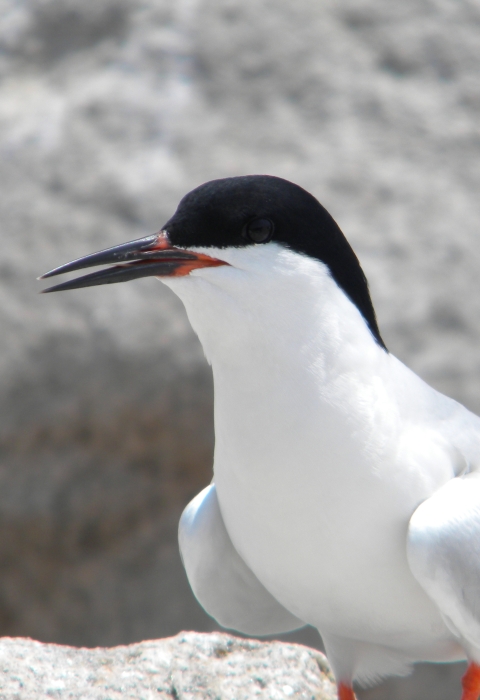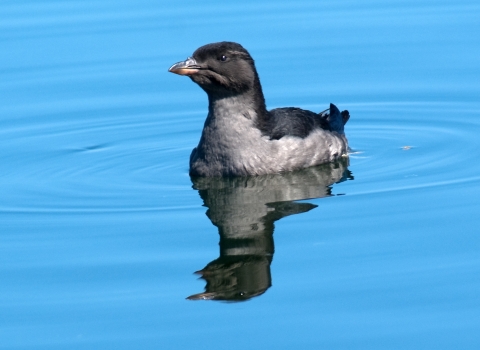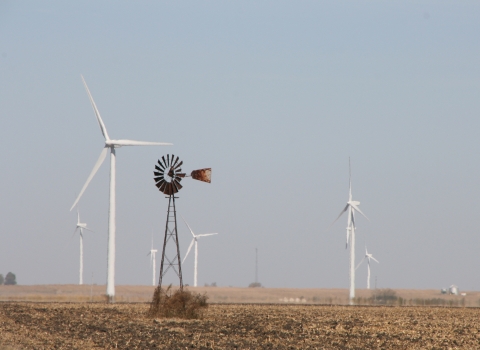Federal and state trustee agencies have released the final restoration plan and environmental assessment to restore natural resources in Buzzards Bay impacted by the 2003 Bouchard Barge B-120 oil spill.
Ram Island and roseate and common terns were severely impacted by heavy oiling and subsequent cleanup activities resulting from the spill. More than $19 million in damages was awarded in a series of settlements with responsible parties, more than $5 million of which was designated to restore the injuries to Ram Island and terns.
The federal and state Trustees will provide $5,534,000 million (plus accrued interest) to fund projects designed to increase the island’s resilience and long-term viability as a nesting location for terns and other seabirds. Habitat will be enhanced by increasing elevations of the interior island, restoring and expanding salt marsh salt marsh
Salt marshes are found in tidal areas near the coast, where freshwater mixes with saltwater.
Learn more about salt marsh and intertidal habitat, and shoreline protection measures to mitigate further erosion and scour. Additional project details are available in the final plan.
“The B-120 oil spill had a profound impact on the people and natural resources of Buzzards Bay. With the help of our co-trustees and numerous partner organizations, we have implemented dozens of projects to restore birds, fish, shoreline and aquatic habitats, and public uses that were impacted by the spill,” said Audrey Mayer, Supervisor of the Service’s New England Field Office. “The Service is pleased to initiate this final phase of restoration, which will directly put back what was lost at Ram Island and recover a vital nesting site in Massachusetts for Endangered roseate terns and common terns.”
"The work of Trustees and partners to restore Ram Island will support important habitats that fish and wildlife rely on for food and protection," said Carrie Selberg Robinson, director of the NOAA Fisheries Office of Habitat Conservation. "NOAA looks forward to continuing our collaborative work with USFWS and the Commonwealth of Massachusetts in successfully completing this restoration."
“The Massachusetts Department of Environmental Protection looks forward to partnering with our fellow trustees and MassWildlife to protect valuable habitat and provide resiliency benefits to Ram Island and the Mattapoisett area,” said MassDEP Commissioner Bonnie Heiple. “This project builds on other important restoration and protection work that we’ve completed throughout Buzzards Bay since the B-120 spill.”
“Habitat restoration and erosion control at Ram Island are critical to the recovery of endangered roseate terns in North America, as about 20% of the population nests on the island,” said Carolyn Mostello, MassWildlife Coastal Waterbird Project Leader. “This important project will conserve biodiversity, provide greater climate resiliency, and help offset negative impacts to roseate and common terns that occurred because of the oil spill.”
Ram Island is a flat, low-lying, three-acre island located less than a mile from the mainland in Mattapoisett, MA. The island is a state-designated wildlife sanctuary, providing critical nesting habitat for both the federally endangered roseate tern and common tern, a species of special concern for the state. Each spring and summer, Ram Island supports one of the three largest nesting colonies of roseate terns in North America. The shallow water habitats around the island, including eelgrass beds and boulder fields, provide essential fish habitat for species such as striped bass, tautog and Atlantic cod. Increasingly frequent and severe coastal storms and sea-level rise have eroded and reduced the size of the island, which in turn is negatively affecting nesting terns and aquatic life using the nearby waters.
View and download the Final Restoration Plan/Environmental Assessment and FONSI.
The National Oceanic and Atmospheric Administration (NOAA), U.S. Department of the Interior (DOI) acting through the U.S. Fish and Wildlife Service (USFWS), the Secretary of Energy and Environmental Affairs of the Commonwealth of Massachusetts (EEA), acting through the Massachusetts Department of Environmental Protection (MassDEP), and the State of Rhode Island serve as the Natural Resource Trustees for the Bouchard B-120 Fuel Oil Spill, Impacts to tribal resources were addressed by the Wampanoag Tribe of Gay Head (Aquinnah) through a separate settlement with Bouchard.



